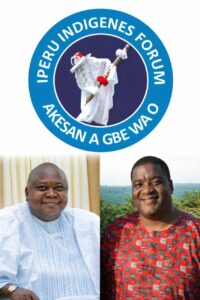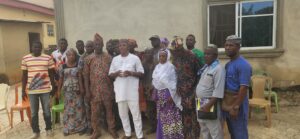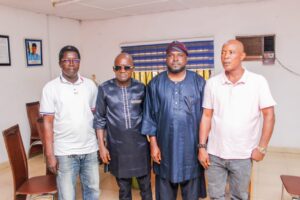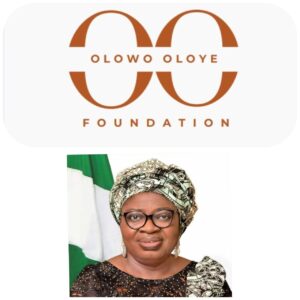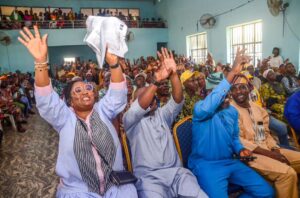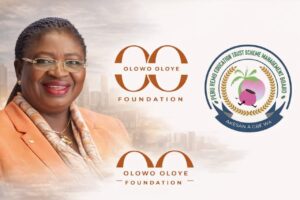Methodist Church of Nigeria, Diocese of Remo, Convenes 34th Synod with a Message of Hope and a Call for National Renewal
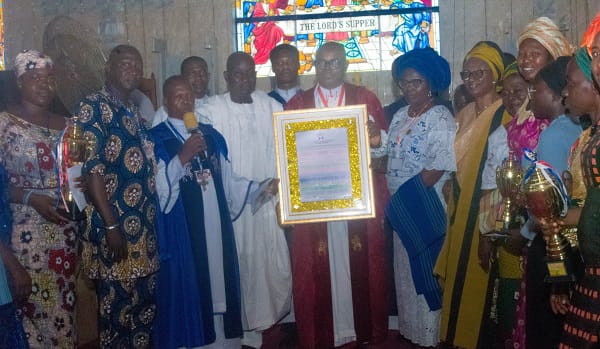
Methodist Church of Nigeria, Diocese of Remo, Convenes 34th Synod with a Message of Hope and a Call for National Renewal
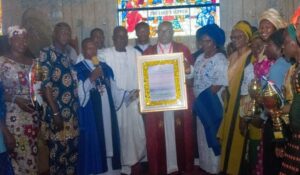
The Methodist Church, Itun-Iwaye, Ilishan Remo, Ogun State was charged with both solemn reflection and fervent hope as the Methodist Church of Nigeria, Diocese of Remo, convened its 34th Synod. Held from Thursday, April 24th to Sunday, April 25th. The significant gathering brought together a diverse and impactful assembly of 272 delegates, comprising 58 members of the clergy and 214 dedicated lay members. The event also saw the presence of a host of esteemed dignitaries from both the ecclesiastical and secular spheres, underscoring the importance of faith-based institutions in the fabric of Nigerian society.
Among the notable attendees gracing the synod was the First Lady of Ogun State, Mrs. Bamidele Abiodun, who arrived with a delegation of her Special Advisers, signifying the state government’s recognition of the church’s vital role in community development. The synod also welcomed a distinguished array of church leaders, highlighting the unity and collaborative spirit within the Christian faith. These included The Most Revd. Adegbemi, A. Adewale, Archbishop of RIYE Archdiocese; Rt. Rev. S.A. Adegbite, Bishop of Ijebu Diocese; Rt. Rev. Charles Ayo Adeniyi, Bishop of Yewa Diocese; Rt. Rev. Amos Ogunrinde, Bishop of Remo Central; The Rt. Rev. Dr. Babatunde F. R. Ogunbanwo, Bishop, Ijebu South West Diocese (Anglican Communion); and representatives of the Most Rev. Dr. M. Olusina Fape, Bishop of Remo Anglican Diocese and Archbishop of Lagos Province. Their collective presence underscored the interdenominational solidarity and shared commitment to addressing the nation’s challenges.
The theme of the 34th Synod, “He Will Rise Again”(John 11:23), resonated deeply with the prevailing socio-economic landscape of Nigeria. This poignant theme was chosen as a direct response to the current hardships faced by citizens, serving as a powerful message of hope, spiritual resilience, and the promise of a brighter future. In a nation grappling with economic uncertainties and social complexities, this theme provided a beacon of light and a reminder of enduring faith.
In the spirit of nation-building and a profound sense of civic responsibility, the synod did not shy away from offering concrete and pointed recommendations to both the federal and state governments. These recommendations, born out of careful deliberation and a deep understanding of the challenges on ground, included urgent calls for increased investment in critical sectors such as education and healthcare, with a particular emphasis on reaching rural and underserved areas. The synod also advocated strongly for government support for religious institutions in their ongoing social welfare efforts, recognizing the significant contributions faith-based organizations make to the well-being of communities. Furthermore, a strong emphasis was placed on enhancing collaboration between government and faith-based organizations to foster justice, reconciliation, and peace across the nation.
Beyond these specific recommendations, the synod engaged in robust discussions on a broad spectrum of national issues. These included a critical assessment of the state of the nation, the dynamics of democracy and governance, the persistent challenges of national security, the growing threat of digital fraud, the importance of health awareness campaigns, the pressing issue of youth unemployment, and the need for a more conducive business climate. The comprehensive nature of these discussions highlighted the church’s commitment to addressing the multifaceted challenges facing Nigeria.
As the synod drew to a close, a powerful call for renewed dedication to service, unity, and community engagement was issued to both the church and the government. Church leaders reaffirmed their unwavering commitment to delivering impactful outreach programs through education, healthcare, and social services, demonstrating their practical commitment to their communities. They underscored the vital role of spiritual values such as love, peace, and justice as essential tools for navigating and overcoming Nigeria’s pressing challenges.
The 34th Synod concluded with a unified resolve to deepen partnerships for national development and to work tirelessly towards building a more just, equitable, and prosperous society for all Nigerians. The gathering served not only as a platform for spiritual reflection and ecclesiastical matters but also as a significant forum for civic engagement and a renewed commitment to the betterment of the nation.
